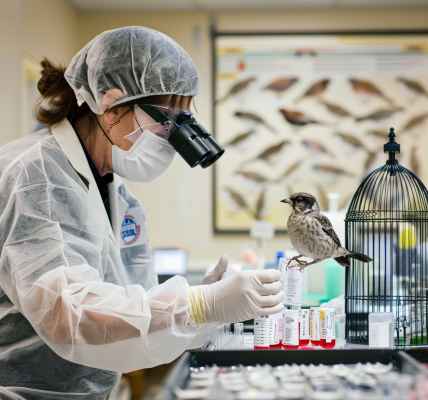In a groundbreaking development, researchers from Cleveland Clinic and Cornell University have unveiled a new artificial intelligence (AI) tool designed to enhance the understanding of protein-protein interactions, which are crucial in the treatment of various diseases. This innovative computational tool, named PIONEER (Protein-protein InteractiOn iNtErfacE pRediction), is now publicly available and aims to streamline the identification of key interactions that could be targeted for therapeutic interventions.
The significance of genomics in drug discovery is well established, yet the journey from identifying a disease-causing gene to the initiation of clinical trials can take an average of 10 to 15 years. Dr. Feixiong Cheng, co-lead author of the study and director of the Genome Center at Cleveland Clinic, emphasizes the complexity of translating genomic data into effective medications. “In theory, making new medicines based on genetic data is straightforward: mutated genes make mutated proteins,” Dr. Cheng explains. However, the practical application of this concept is fraught with challenges.
Proteins in the human body do not function in isolation; they interact with numerous other proteins, creating a vast and intricate network known as the interactome. This network becomes increasingly complex when accounting for disease-causing mutations in DNA. A single gene can undergo various mutations, each potentially leading to the same disease, thereby resulting in multiple interactomes associated with a single protein variant.
As a result, drug developers face the daunting task of sifting through tens of thousands of potential disease-causing interactions. This process is further complicated by the necessity of analyzing the physical structures of affected proteins to generate a list of possible interactions.
To address these challenges, Dr. Cheng and his team collaborated with Dr. Haiyuan Yu, director of the Cornell University Center for Innovative Proteomics. Together, they developed PIONEER, which integrates vast amounts of data from diverse sources. This includes genomic sequences from nearly 100,000 individuals with either inherited or acquired disease-causing mutations, predominantly in the context of cancer. Additionally, the tool incorporates the three-dimensional structures of over 16,000 human proteins, along with data regarding how DNA mutations affect these structures.
PIONEER’s capabilities were recently demonstrated in a study published in the prestigious journal Nature Biotechnology, where researchers successfully identified potential drug targets for various cancers and other complex diseases. The tool’s design allows for a more focused approach to drug development by pinpointing the most promising protein-protein interactions, thereby accelerating the process of discovering effective therapies.
The introduction of PIONEER marks a significant advancement in the field of health informatics and genomics. By harnessing the power of AI, researchers can now effectively navigate the complexities of protein interactions, paving the way for innovative treatments that target the underlying causes of diseases at the molecular level.
This development underscores the importance of interdisciplinary collaboration in scientific research. The integration of genomic data with advanced computational tools exemplifies how technology can enhance our understanding of biological processes and ultimately lead to improved health outcomes.
As the scientific community continues to explore the potential of AI in medicine, tools like PIONEER are expected to play a critical role in shaping the future of drug discovery and personalized medicine. By enabling researchers to identify and target specific protein interactions, this tool not only holds promise for cancer treatment but also has implications for a wide range of other diseases.
In summary, the launch of the PIONEER tool represents a significant step forward in the quest to understand and manipulate protein-protein interactions for therapeutic purposes. As researchers leverage this innovative technology, the hope is that it will lead to faster and more effective drug development, ultimately benefiting patients worldwide.





